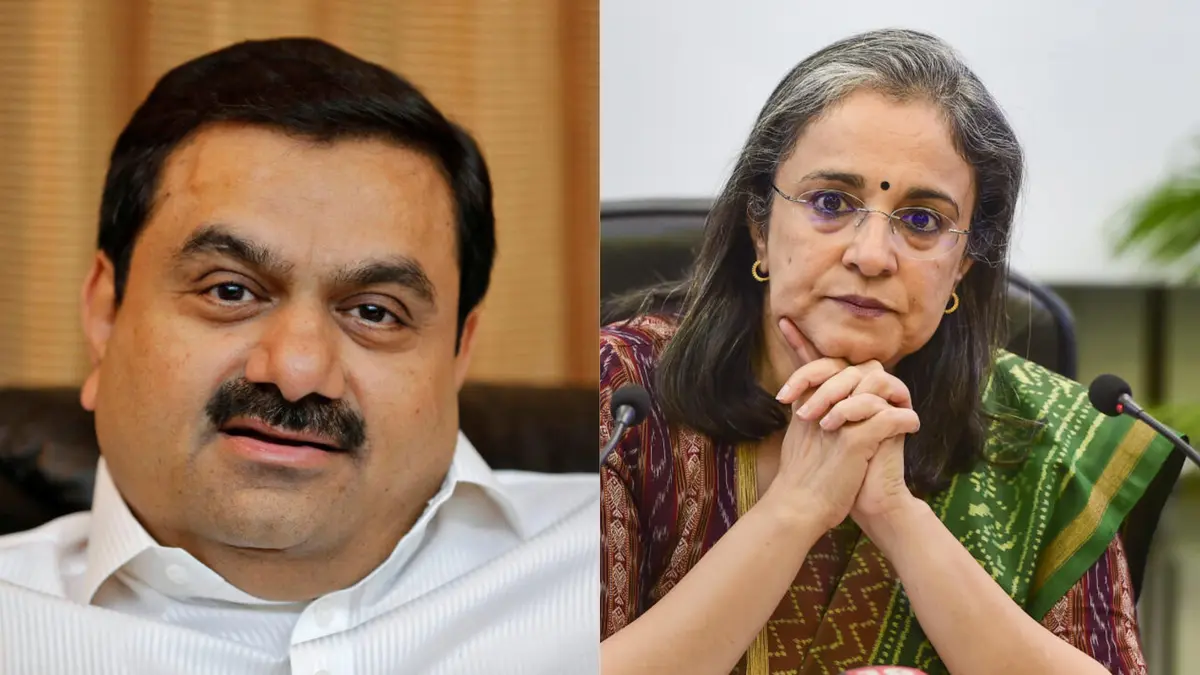Whistleblower Documents Expose SEBI Chairperson's Alleged Involvement in the Adani Money Siphoning Scandal

Whistleblower Documents Expose SEBI Chairperson's Alleged Involvement in the Adani Money Siphoning Scandal
Introduction
In a scandal that could shake the foundations of India's financial regulatory system, whistleblower documents have surfaced, implicating Madhabi Buch, the current Chairperson of the Securities and Exchange Board of India (SEBI), and her husband, Dhaval Buch, in the Adani money siphoning scandal. The revelations have come nearly 18 months after Hindenburg Research's explosive report on the Adani Group, which accused the Indian conglomerate of operating "the largest con in corporate history." The new documents suggest that SEBI's apparent reluctance to pursue meaningful action against the Adani Group may stem from conflicts of interest involving its highest-ranking official.

Background: The Adani Scandal
Hindenburg Research’s initial report, published in early 2023, exposed a web of offshore entities, primarily based in Mauritius, that were allegedly used by the Adani Group for billions of dollars in undisclosed related party transactions, investments, and stock manipulation. Despite the overwhelming evidence and corroboration from over 40 independent media investigations, SEBI has shown a surprising lack of interest in taking public action against the Adani Group.
Instead, SEBI has targeted Hindenburg Research, sending a 'show cause' notice on June 27, 2024. The notice did not dispute any of the factual claims made in Hindenburg's 106-page report but criticized the firm for allegedly insufficient disclosure regarding its short position. SEBI also labeled Hindenburg's report as "reckless" for quoting a banned broker who detailed how SEBI was fully aware of Adani's offshore activities but chose to participate in the schemes.
The Mauritius Connection: IPE Plus Fund and Vinod Adani
One of the key elements of the Adani scandal involves a small offshore Mauritius fund named IPE Plus Fund, which was set up by an Adani director through India Infoline (IIFL), a wealth management firm with ties to the infamous Wirecard scandal. Vinod Adani, the brother of Adani Group Chairman Gautam Adani, allegedly used this fund to invest in Indian markets with money siphoned through over-invoicing power equipment.
The structure was complex, with Vinod Adani’s company investing in the Global Dynamic Opportunities Fund (GDOF) in Bermuda, which then invested in the IPE Plus Fund. The nested funds managed by IIFL raised suspicions due to their convoluted structure and the involvement of entities tied to Vinod Adani.
Whistleblower Revelations: SEBI Chairperson's Alleged Involvement
The whistleblower documents reveal that Madhabi Buch and her husband had hidden stakes in the same offshore funds used by Vinod Adani for money laundering. The documents show that the couple opened their account with IPE Plus Fund 1 on June 5, 2015, in Singapore. At that time, Madhabi Buch was not yet a member of SEBI. However, she was appointed as a Whole Time Member of SEBI in April 2017, just weeks after her husband requested that he be the sole person authorized to operate the accounts, effectively removing Madhabi Buch’s name from the politically sensitive investments.
Further documents indicate that even during her tenure as a Whole Time Member of SEBI, Madhabi Buch continued to operate through her husband's name, using her private Gmail account to redeem units in the fund. This raises serious concerns about the integrity and impartiality of SEBI's actions, particularly in its investigation—or lack thereof—into the Adani Group's offshore activities.
SEBI's Investigation: A Case of Conflict of Interest?
The Indian Supreme Court has already expressed dissatisfaction with SEBI's investigation into the Adani matter, stating that the regulator "has drawn a blank" in unveiling the holders of offshore funds tied to the Adani Group. The whistleblower documents suggest that SEBI’s reluctance to take meaningful action against these offshore shareholders may be due to Madhabi Buch’s own involvement in similar offshore funds.
Moreover, the documents reveal that from April 2017 to March 2022, while serving as a Whole Time Member and later as Chairperson of SEBI, Madhabi Buch had a 100% interest in an offshore Singaporean consulting firm called Agora Partners. This firm, exempt from disclosing financial statements, was quietly transferred to her husband's name just two weeks after her appointment as SEBI Chairperson in March 2022. The nature of this offshore business, coupled with her husband’s simultaneous appointment as a Senior Advisor to Blackstone, a major player in India’s real estate and capital markets, adds another layer of potential conflict of interest.
Blackstone Connection: A Troubling Pattern
During her husband's tenure as a Senior Advisor to Blackstone, SEBI proposed and implemented several major regulatory changes benefiting Real Estate Investment Trusts (REITs), a nascent asset class in India heavily backed by Blackstone. These changes, including seven consultation papers, three consolidated updates, and two new regulatory frameworks, facilitated the approval and IPO of multiple Blackstone-sponsored REITs. Given that Madhabi Buch was responsible for overseeing these regulatory changes, the timing of her husband's appointment and SEBI's actions raise significant ethical concerns.
Conclusion: A Crisis of Confidence
The whistleblower revelations paint a troubling picture of SEBI's leadership and its ability to impartially regulate India's financial markets. The apparent conflict of interest involving SEBI Chairperson Madhabi Buch and her husband, combined with the regulator's lack of action against the Adani Group, undermines public trust in the institution. As the scandal unfolds, it remains to be seen whether SEBI will take meaningful steps to address these allegations or if further regulatory capture will continue to erode confidence in India's financial markets.
The Indian public, investors, and international observers alike will be watching closely as this story develops. The integrity of India's regulatory framework hangs in the balance, and the need for transparency and accountability has never been more urgent.